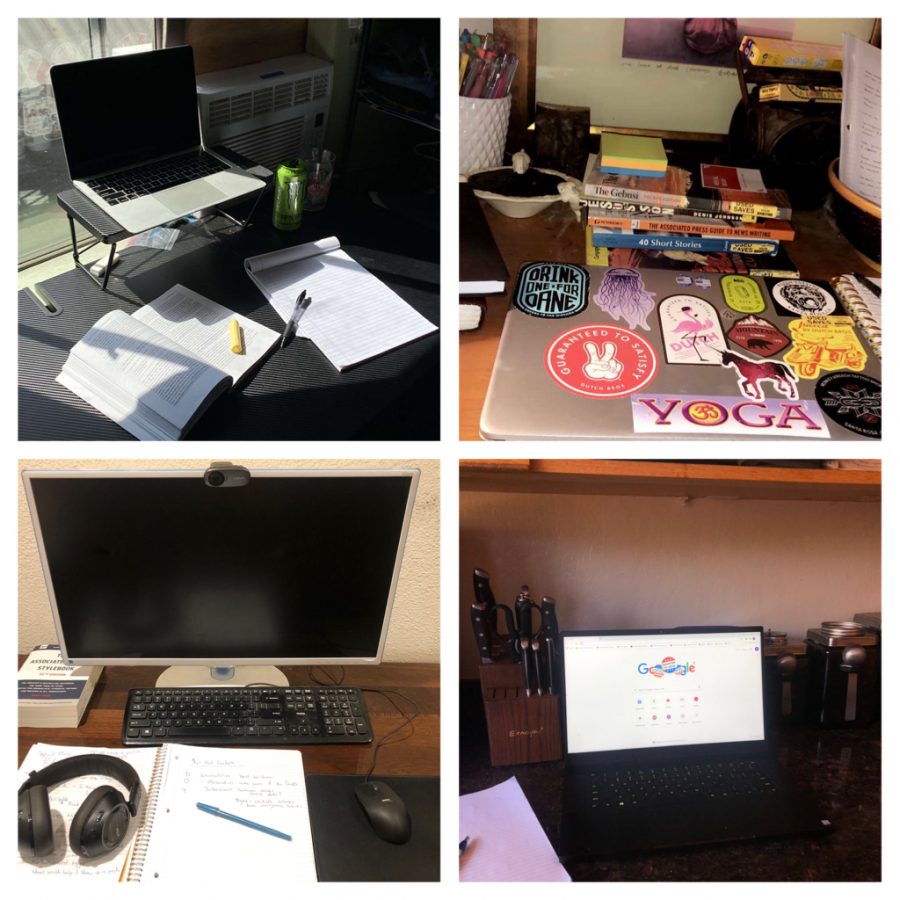SRJC officials announced on Aug. 27 that the school would be continuing remote instruction through the Spring 2021 semester, which has evoked strong reactions from students and staff. Several students and faculty said it’s a decision made too soon, while others appreciated the sense of security the decision provided.
SRJC President Frank Chong explained in a school-wide email that he chose to continue remote instruction through the spring semester after consulting with the board of trustees, his vice presidents, faculty and classified leadership, California Community Colleges Chancellor Eloy Oakley and Sonoma County Health Officer Dr. Sundari Mase.
“Other colleges and universities across the U.S. reopened for in-person classes too early and saw a dramatic increase in COVID infections. The safety of our students, employees and community members remains the top priority at SRJC, and while we look forward to the day when we can come together again, we will not risk the health and wellness of our community to do so,” Chong said in his email on Aug. 27.
Laura Ainsworth, a Communication Studies instructor at SRJC, disagreed with Chong. “The decision to remain online has undermined my entire belief in education in California, a system which was considered the best in the world,” she said. “I thought we would lead through this crisis; instead, it is clear that we are the holdouts against science, facts, and the very essence of reason.”
Ainsworth said there is a greater risk of dying in a car accident on the way to campus than dying from COVID. “We need to be back in class, back on the fields, back in the theatre, back in the pool and back in the rink,” she said. “When the elite institutions of higher education are able to return, and the public institutions of higher education are not, that should tell you all you need to know.”
Students of all ages and backgrounds used the SRJC student app to vocalize their frustration with the decision.
SRJC psychology major Robyn Landrum, 34, said that attending class in person makes the entire college experience more meaningful. “One semester online is like: OK, we’ll deal with it. Two semesters are unreasonable.”
Landrum is one of many students unhappy with the recent decision to extend online-only learning. Several students are expressing their fears over what several semesters worth of remote learning is doing to their mental and emotional healths.
“I understand the good intentions behind the decision, but online learning is really hard on students both academically and emotionally due to lack of human interaction. I’m just worried that COVID-19 will be gone, other institutions will start opening up and we will miss our opportunity of going back to on-campus learning,” said Sam Sheykhet, 18.
Art major Clara Lopez Oritz, 27, has struggled with the shift to online learning: “I’ve become less motivated and started to procrastinate for the first time with remote learning. I just need to remind myself that this is just for the moment until everything gets better again. I just hope we don’t get pushed back even further by lost promises.”
Loss of motivation has been a common struggle among students, although some are still looking on the bright side, explaining that online learning has helped them focus more on their studies.
Elizabeth Espinosa-ouk, 25, a child development major, is one of the students who feel this way: “Although distant learning has its drawbacks, this is a great opportunity for people to become more independent, and those who are shy to ask questions in class, like me, don’t feel as threatened.”
Claudia Elena Salazar Gallegos, 18, a double major in French and early childhood education, also shared optimism. “On the one hand, it’s helped me to be more focused on my assignments, but sometimes it’s harder to understand the teachers because you’re not on campus,” she said. “At the same time, I find it easier to ask my question because people are not directly staring at me, and I am shy when it comes to asking questions. There are definitely pros and cons.”
Dr. Chong said the process decision makers went through for the spring 2021 semester was similar to the one for this fall. “All signs pointed to that things are not going to get better by the spring,” he said. “There’s no vaccine, there’s no national strategy and the numbers are still going up at other colleges that opened for the fall.”
Dr. Chong quoted Lasana O. Hotep, an anti-racist trainer who spoke with him at SRJC’s professional development day. “We’re over the COVID but the COVID isn’t over us.”
“I’m hoping I’m wrong, I’m hoping things turn and I’m hoping that we can be safely on campus again, but I consider it my job to protect the health and safety of our employees and the students,” Chong said. “Do I like it? No, I hate it. I’m a very social person. I like being on campus, walking around talking to students.”
Dr. Chong can relate to how students are feeling in terms of being cooped up, but he also recognizes it’s not safe to be in person right now. “It’s sad to see people getting stressed and losing their temper, but I think as leaders we have to make tough decisions and stand by them,” Chong said.
When asked whether the student services center is doing anything to handle students’ elevated stress during this time, Chong explained that the Student Health Center and our mental health services have been doing outreach to students via a Zoom therapy group and individual sessions.
“This has provided support services to our students who are under a lot of pressure and stress. We encourage them to make appointments,” Chong said. “We are trying to convert all the services at the college to be remote, which we have done. Transfer day was done remotely this year, and there are so many services we think we can offer effectively on zoom.”
Dr. Chong did state that this decision is not set in stone, and if the pandemic starts to turn around, school may look different for the Spring 2021 semester.
Specific resources for fall 2020 from Student Health Services: https://shs.santarosa.edu/resources.fall.2020




